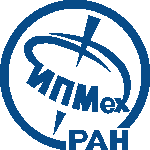
|
ИСТИНА |
Войти в систему Регистрация |
ИПМех РАН |
||
Technology, natural resources and crises in the past and present of Europe and beyondКонференция
- Охват: Международная
- Даты проведения: 21-22 октября 2016
- Место проведения: ВШЭ-СПб, Россия
- Число участников: 80
- Число иностранных участников: 25
- Число участников из МГУ: 1
- Число докладчиков: 40
- Веб-сайт: http://sh.spb.hse.ru/en/history/announcements/185223506.html
-
Описание конференции:
Technology is a crucial factor in how humans interact with nature. As Theodor Schatzki states in his visionary article on nature and technology in history, “technology, society, and nature are so bound together in and as history that change in any one of them – in available technology; in human practices; in encountered, learned about, or incorporated nature – generally results in a simultaneous transformation in the other two”. One of the key illustrations of this change is changing attitudes towards natural resources in history. We know of many cases where the overexploitation of resources causes societal, environmental or technological crises. And yet, we do not sufficiently discuss how any of these crises force societies to substantially change their patterns of resource exploitation and / or to ‘construct’ new resources to overcome crisis. Studying and utilizing natural resources are widely recognized as pressing issues for contemporary Europe. Historical research is needed to understand the implications of the construction of particular natural objects as resources, the peculiarities of the interrelationship between societies and those resources, and conceptions of how the significance of individual resources in the life of society changes in different historical periods. We propose to discuss these and other issues at a workshop, focusing on both living and non-living resources and their use as a concept which helps to illuminate both crises and their solutions over history. This workshop is designed to explore the crossroads between the history of technology, environmental history, the history of exploitation of natural resources in the past and present. The geographical scope of the workshop will cover Europe, its neighboring countries, and countries further afield that have been shaped by European markets and technology. This research will shed light upon: 1) how technology was used by states, scientists, local communities and other actors as a tool to build factories, excavate natural resources and explore new territories; 2) how technology contributed to conceptions of development and a sustainable environment, including the making of green technology, forestry, water politics, agricultural development, and bio fuels (among others). We intend to explore the roles of expert and local knowledge and practices in the conceptualization, preservation, and exploitation of natural resources; to chart changing patterns of natural resource use;; to describe and analyzethe circulation of knowledge technologies for exploiting natural resources in Europe and beyond; and to describe the contexts in which significant sites of resource exploitation became important sites of historical memory.
- Добавил в систему: Володин Андрей Юрьевич
Доклады:
- 2016 The Paradox of Plenty: theory and history in Russian case (Устный)
- Автор: Volodin Andrei